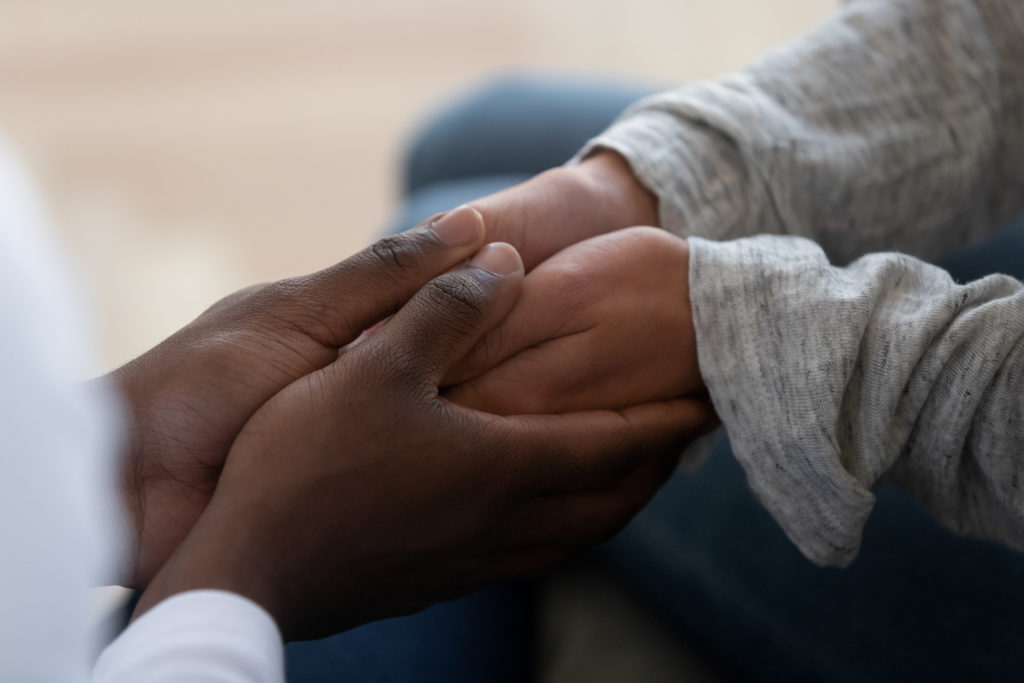
As our new normal continues to evolve, technology has made communicating and staying in touch with friends and family easier than ever. Through FaceTime and video conferencing, we can reach out to friends across the country or conference remotely with coworkers. This same technology and need to adapt have also had an effect on medicine, including psychiatry.
You may have heard about “teletherapy” and are wondering what exactly it means, how it works, and what it looks like. We’ll explain what teletherapy is, what its benefits are, and answer questions you may have about this growing practice.
What is Teletherapy?
Teletherapy, also commonly known as telepsychiatry, applies telemedicine to the field of mental health therapy and counseling. Generally, teletherapy refers to psychiatric treatment delivered through technology like video conferencing.
Through telepsychiatry, therapists can remotely work together with their patients to offer online therapy sessions, develop coping techniques and new routines, and practice therapeutic techniques like cognitive behavioral therapy.
What Does Telepsychiatry Look Like?
Telepsychiatry often involves virtual interaction between a psychiatrist and the patient, typically through the use of computers, tablets, and smartphones.
Teletherapy also includes psychiatrists and mental health specialists supporting patients’ primary care providers with their consultation and expertise. Mental health care can be delivered in a live, interactive setting.
In general, teletherapy sessions work exactly the same as traditional therapy. Patients schedule individually with a psychiatrist or therapist for a live video appointment. Patients should plan ahead and prepare just as they would for an in-person session. If it’s your first appointment, be sure to have relevant records and information available, including prescriptions, and a list of questions to address.
In addition to one-on-one therapy sessions, teletherapy can also be used to deliver other types of counseling. This includes group, family, and marriage counseling. Just like online therapy for an individual, patients can use video communication technology to meet in groups, or as a family or couple, to take part in therapist-mediated sessions. These sessions are conducted just as they would be if everyone were together in the same room.
Is Teletherapy As Effective As In-Person Treatment?
You might be wondering if teletherapy is as effective as regular in-person visits to your therapist. The answer is, for most patients, yes. In fact, the American Psychiatric Association states, “Telemedicine in psychiatry is a validated and effective practice of medicine that increases access to care.” Studies have also shown that telepsychiatry can be more beneficial for certain patients, especially those who feel uncomfortable in a clinical or unfamiliar setting.
Teletherapy can help some patients feel more relaxed and willing to share their thoughts and feelings. Being inside the comfort of their own home can make a huge difference for certain individuals’ comfort levels. For some patients, the use of technology may seem like a hurdle. However, as technology improves and people become more familiar and comfortable with video communication, telepsychiatry will become more prevalent and accessible.
Of course, telepsychiatry does have some limitations. Certain types of therapy, such as play therapy for children, are limited by telehealth. For those sessions, in-office visits would provide a better experience.
Getting Help Through Teletherapy
In response to COVID-19, social distancing has become our new way of life. To continue providing safe, effective treatment for our clients, High Focus Centers is offering teletherapy solutions for group, individual, and family sessions, as well as medication management.
If you or a loved one is in need of therapy during this time, High Focus Centers’ team of expert therapists and clinicians are here to help. Contact our team to learn more about telehealth and to start your recovery today.
Recent Posts
- Graduation, Transitions and Mental Health: Supporting Young Adults Through Post-College Anxiety and Depression
- Easter and Mental Health: A Season of Hope, But Not Always Joy
- Cognitive Dissonance: Why Conflicting Thoughts Affect Your Mental Health
- School Clearance Programs: Supporting Student Well-Being
- Navigating Early Recovery: What to Do and What to Avoid


